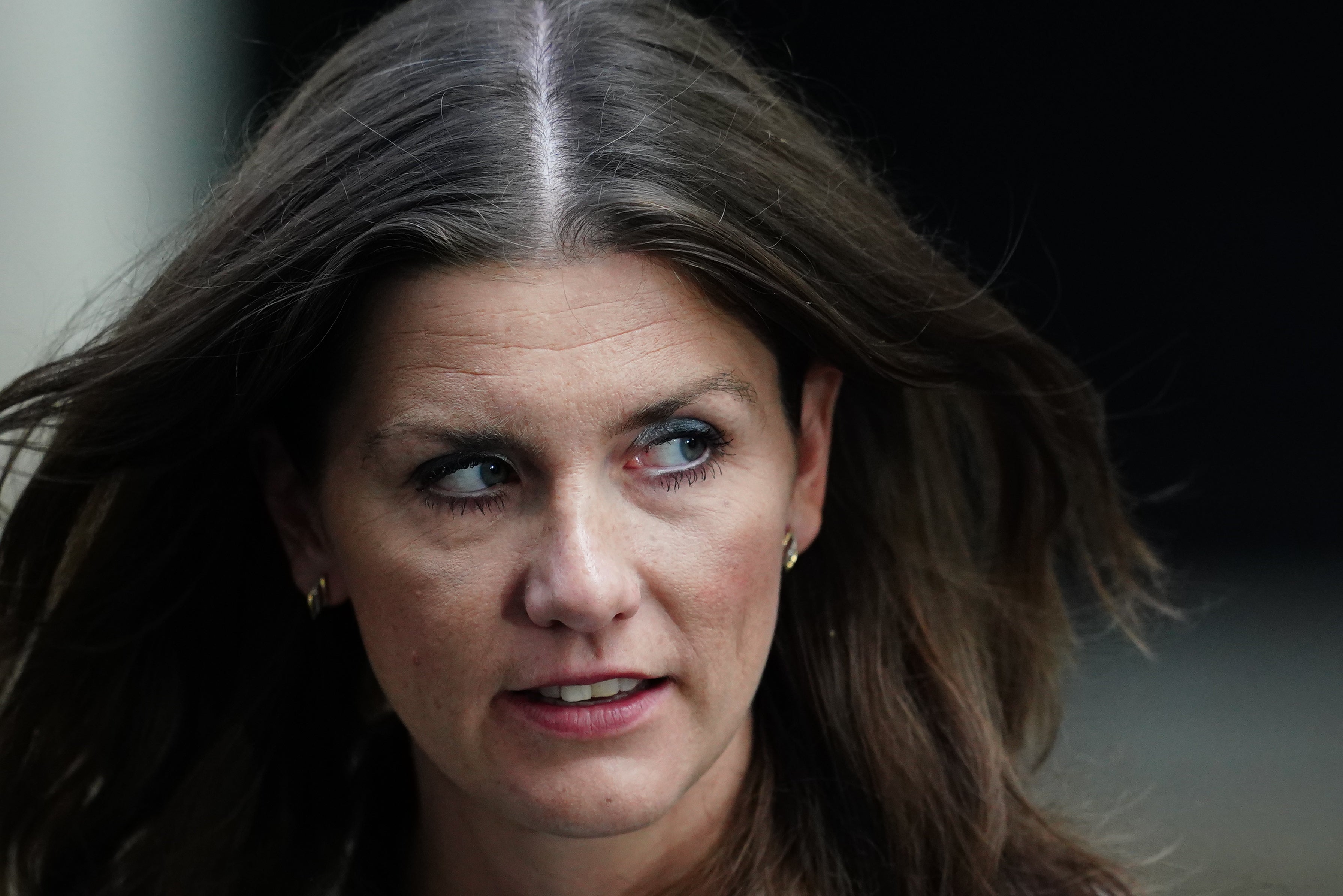Government reviewing ‘business case’ for privatising C4 – Culture Secretary
Michelle Donelan has taken over the brief from her predecessor, Nadine Dorries.

Your support helps us to tell the story
From reproductive rights to climate change to Big Tech, The Independent is on the ground when the story is developing. Whether it's investigating the financials of Elon Musk's pro-Trump PAC or producing our latest documentary, 'The A Word', which shines a light on the American women fighting for reproductive rights, we know how important it is to parse out the facts from the messaging.
At such a critical moment in US history, we need reporters on the ground. Your donation allows us to keep sending journalists to speak to both sides of the story.
The Independent is trusted by Americans across the entire political spectrum. And unlike many other quality news outlets, we choose not to lock Americans out of our reporting and analysis with paywalls. We believe quality journalism should be available to everyone, paid for by those who can afford it.
Your support makes all the difference.The new Culture Secretary has cast doubt on the future of Government plans to sell off Channel 4, saying it is re-examining the “business case” to make sure “we still agree with that decision”.
The decision to take Channel 4 out of public ownership was announced under the tenure of Michelle Donelan’s predecessor Nadine Dorries, who led the controversial move during her time under Boris Johnson’s leadership.
Ms Dorries announced she was standing down as Culture Secretary following Mr Johnson’s departure earlier this month, with his successor as PM, Liz Truss, naming Ms Donelan the new Secretary of State for Digital, Culture, Media and Sport (DCMS).
She told BBC Radio 4’s Today programme that Ms Truss’s government is re-examining the “business case” for the sale of Channel 4.
“We are looking especially at the business case for the sale of Channel 4 and making sure that we still agree with that decision, and that is what I am doing,” she said.
“I’m the type of politician that bases their decisions on evidence, that bases their decisions on listening and that’s what I will be doing over the coming weeks.
“I will take that approach when it comes to Channel 4 and every aspect of my brief.”
Speaking on BBC Breakfast, when pressed as to whether there was “a bit of room for manoeuvre” regarding the sale, she insisted: “I think it just means that I’m looking at the business case but I will update you once I’ve done so.”
Ms Donelan, who represents the Chippenham constituency, also addressed the BBC licence fee, saying she would look at it “in the round” as she declined to say whether it could be scrapped.
Appearing on Sky News, she praised the coverage of the Queen’s death and funeral by both the BBC and Sky.
But she also issued a warning to the national broadcaster over the future of the licence fee.
She said: “It is no secret that I have been a long-term sceptic of the licence fee and that we need to make sure that the BBC is sustainable in the long term. So I’m looking at this in the round.
“I’m somebody that listens, I’m somebody that decides policy based on evidence and that’s what I will be doing over the coming weeks.”
She declined to say outright whether the licence fee should be scrapped, but said rival TV services from streamers such as Netflix and Amazon raised questions about whether “the current model that the BBC uses is actually sustainable in the long term and is providing that choice element to the general public”.
In January, Ms Dorries announced that the licence fee would be frozen at £159 for the next two years until April 2024.
She said she wanted to find a new funding model before the current deal expires in 2027 as it is “completely outdated”.
It literally makes no sense to try and find a solution to a problem that doesn’t exist
The review was due to begin before the Commons summer recess on July 22 but was thrown into doubt after Mr Johnson’s resignation as Tory leader.
John McVay, chief executive of Pact, the trade body for independent TV and film production companies, said: “The new Prime Minister has made it clear her priority is to drive growth.
“Privatising Channel 4 would do the opposite, endangering the future of thousands of British production companies and endangering the future prospects of a thriving industry which has a presence right across the country.
“It literally makes no sense to try and find a solution to a problem that doesn’t exist and that is why I am delighted that the new Culture Secretary has committed to re-examining the business case for privatising Channel 4.”
A spokesperson for Channel 4 said: “Channel 4 looks forward to working with the new Secretary of State as she examines options for Channel 4.”